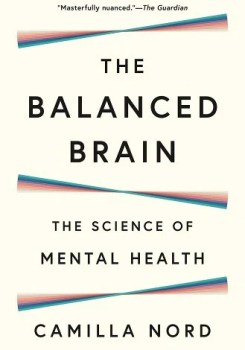Neuroscience Can Explain Why We Get Hangry
In ‘The Balanced Brain,’ the overlap between the chemical signals for hunger and anger shows how emotions and bodily states are closely linked.
The following is an excerpt from The Balanced Brain: The Science Of Mental Health by Camilla Nord.
When you purchase products through the Bookshop.org link on this page, Science Friday earns a small commission which helps support our journalism.

The Balanced Brain: The Science Of Mental Health
In January 2018 the Oxford English Dictionary added the word ‘hangry’ to its lexicon: feeling bad- tempered or irritable as a result of hunger. ‘Hangry’ may be the most famous body- emotion portmanteau, but the concept that bodily states influence emotion is a much more general finding in psychology and neuroscience. Hunger, thirst, inflammation and many more aspects of our physical bodies have profound effects on our thoughts, emotions and behaviours.
This occurs because of the constant streams of information sent from the body to the brain, communicated from a huge array of sources inside your body, including your heart, lungs, gut, immune system, blood vessels and bladder. Scientists are beginning to show that changes on a micro- level all over your body strongly affect your mental health. Likewise, many mental health disorders are also accompanied by disruptions in physical processes outside the brain, including the immune system.
Why does someone feel ‘hangry’? A study from 2022 tracked people throughout their days, finding that greater levels of anger occurred when people reported their hunger to be highest (hunger was also associated with heightened irritability and lowered pleasure, though ‘hirritability’ does not roll off the tongue). There are a couple of popular explanations for the phenomenon of ‘hangry’.
One explanation attributes it to the chemicals released when our blood sugar (glucose) drops. More specifically a drop in available glucose in the blood triggers the release of stress hormones, ostensibly to tell you to acquire food ASAP. As the explanation goes, stress hormones released by hunger coincidentally overlap with those associated with anger or irritability.
We only have so many stress hormones, so the overlap can confuse your brain into thinking you are angry when you are actually hungry. Once you eat something you reduce this stress hormone, alleviating your mistaken hanger.
There is an element of truth to this: physiological and psychological stress do involve similar physiological stress responses. But this answer does not satisfy me entirely. It assumes that your brain is passive, a receptor, just listening to chemicals in the body that make it feel hungry, angry, etc. Yet we know that, although the brain certainly listens to the body, it is not a passive receptor, easily confused by similar chemical signals. It actively interprets, predicts and regulates bodily information. This explanation also presumes that the overlap of chemical signals is mere coincidence, that ‘hangry’ happens because by chance the same chemicals happen to be released in a state of hunger and anger. As I will explain in this chapter, I think the overlap is not pure chance – there is probably a good reason for it. Like the common circuits for pleasure and pain relief in Chapter 1 it is a key feature of the brain. Another slightly different interpretation of the origins of ‘hangry’ explains the phenomenon as coming from the brain’s need for energy. According to this explanation, when the brain runs out of fuel its ability to inhibit emotions is lowered. Inhibiting strong emotions requires energy, so this explanation assumes you must have been feeling some level of irritability before you became hungry; the hunger just released your emotional control.
Although this explanation is plausible too, I still do not think it is the full story. At any given moment we are usually feeling multiple low- level emotions, so if hunger just releases emotional control why do you rarely hear that anyone feels scared, surprised or disgusted when they are hungry? It neglects the ‘angry’ part of ‘hangry’.
To really understand where ‘hangry’ comes from I think the very first thing to figure out is where an emotion comes from. The nature of emotions and bodily states are very closely interlinked. And the origins of ‘hangry’ also tell us something very crucial about mental health.
Excerpted from THE BALANCED BRAIN: The Science of Mental Health © 2024 by Camilla Nord. Reprinted by permission of Princeton University Press.
Dr. Camilla Nord is the author of The Balanced Brain: The Science of Mental Health, and the director of the Mental Health Neuroscience Lab at the University of Cambridge in Cambridge, UK.